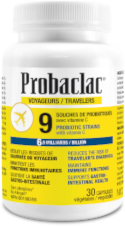It is said that between 60 and 80% of travelers in the tropics, subtropics and developing countries are affected by this unpleasant gastroenteritis.
Although the risk is higher in these areas, the World Health Organization (WHO) reminds us that hygiene may leave something to be desired anywhere, it is always better to err on the side of caution1,2.
Click on a country to see the % rate of getting traveler's diarrhea
TD usually comes into play the first 3 to 5 days of the stay.
It most often presents itself as a liquid diarrhea without fever and without blood.

A good number of bacteria are responsible for the contamination, the best known and the most common is undeniably the enterotoxigenic Escherichia coli also known in its abbreviated form of E. coli.
The mechanism of action of the E. coli bacteria is essentially the production of an enterotoxin (a toxic substance that targets the intestines) that causes a flow of water and electrolytes into the intestinal lumen, softening the stool and leading to diarrhea3.
Other bacteria causing this disease are Salmonella, Shigella, and Campylobacter. The disease can also sometimes be caused, although less often by parasites such as Giardia, Cryptosporidium, Cyclospora or viruses such as rotavirus or norovirus1,2.



Beyond the tips mentioned above, there are two types of products that can reduce the risk of infection.












For more information on travel probiotics, visit the page
Probaclac Traveler